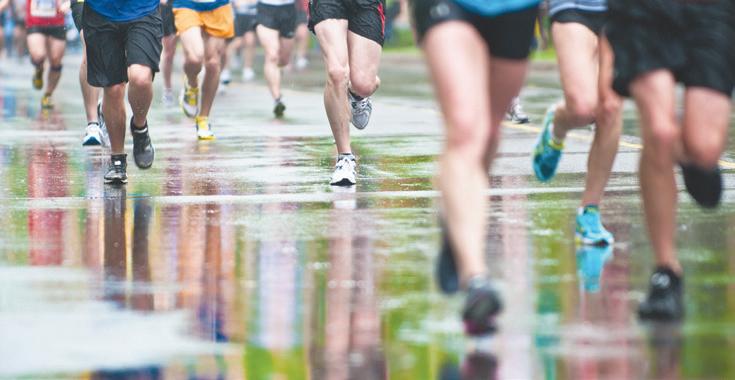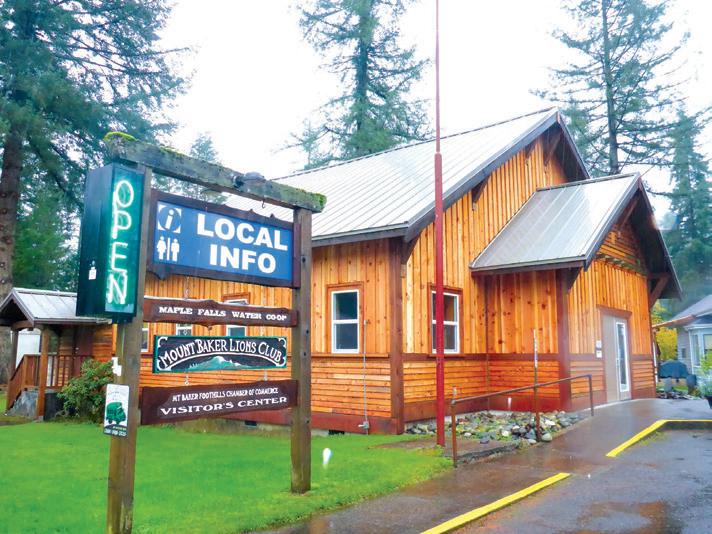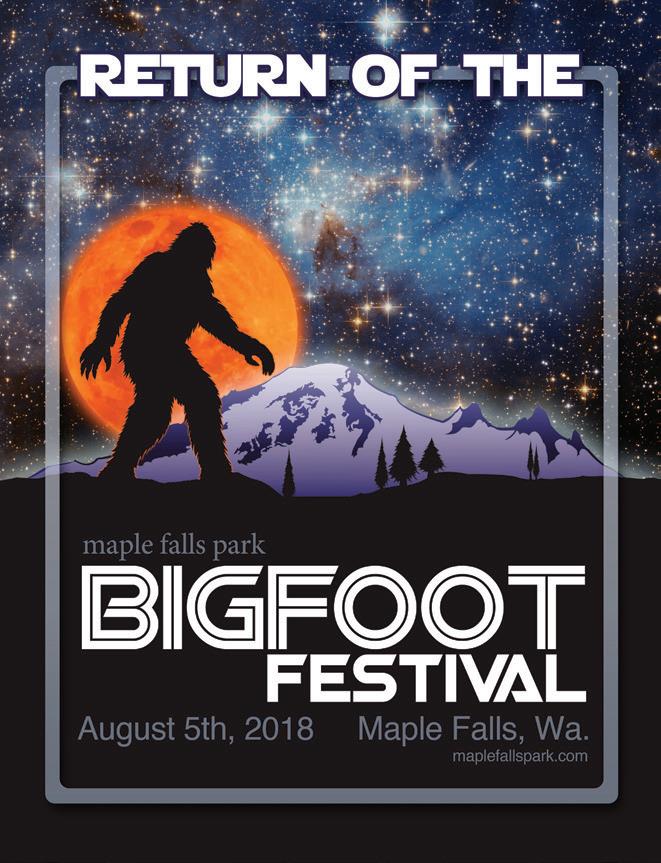
4 minute read
PRE-RACE TIPS
‘Third Generation Knowledge’
comes with local experience and being locally connected.
Advertisement
• Call today to learn about the unique real estate opportunities in the Mount Baker region!



bethniemorrison22@gmail.com
Mt Baker Visitors Center
Free Maps & Area Information

Recreational Passes Available Here!
ANNUAL & DAILY
Open Daily 10 a.m. - 4 p.m.
Maple Falls corner of Mt. Baker Hwy. and Silver Lake Rd.
360-599-1518 • www.mtbakerchamber.org


August 6th, 2022
Pre-race tips

for marathoners and other racers
By Robert Rush, M.D.
With sunnier skies, longer days and the Bellingham Bay Marathon coming up in September, it’s a good time to start talking about how to avoid injuries and ailments during vigorous exercise.
Being healthy and prepared at the starting line is the single best thing you can do to make sure you make it through the race without having to visit the medical tent. It’s important to train for a marathon; ideally you should start about three months ahead. Suddenly doing a large amount of intense exercise without working up to it can cause joint problems and other injuries. Be sure to properly stretch to help your muscles stay loose and strong, and consider running on uneven terrain with a treadmill, elliptical machine or on a hill run.
But even if you do everything you can to slowly build up strength, stamina and speed, you can get into trouble on race day.
Here’s my best advice to avoid an injury — whether it’s on the marathon course or during any kind of intense exercise.
HYDRATE, HYDRATE, HYDRATE!
Hands down, the most common problem we see in the medical tent is dehydration — especially on warm, sunny days. The average person loses as much as 1 to 2 liters of water per hour during vigorous exercise. As you lose fluids, energy wanes, muscles cramp and blood pressure falls.
Ideally, proper hydration should start well before the race does; ideally, five to seven days beforehand. Start drinking a little more water than you normally do — and stick to water, not juice or energy drinks or soda.
The American College of Sports Medicine recommends drinking approximately 16 ounces of fluid about two hours before exercise to help ensure adequate hydration and to allow time to excrete excess water. Avoid caffeinated beverages, as they have a diuretic effect.
During a race, it’s important to stop for water at all hydration stations or carry water with you. You need to replenish the fluids you’re losing — about four to eight ounces every 15 to 30 minutes is a good rule of thumb.
Symptoms of mild dehydration include headache and light-headedness — bad enough to affect your time but not likely to bring you to the tent. As dehydration worsens, electrolytes — minerals such as calcium and potassium that carry energy through the body — become imbalanced, throwing off your blood chemistry, muscle function, and other key bodily functions. In more severe cases, you can get delirious.
EAT PROPERLY
Make sure meals leading up to the race include foods with complex carbohydrates, such as whole grains, green vegetables, legumes and starchy vegetables (potatoes, squash, corn), as well as adequate protein and iron. Carry carb-rich snacks like energy bars with you.
WEAR THE RIGHT SHOES
You’ll want shoes you’ve run in and know work for you. Race day isn’t the time to break in a new pair. We see plenty of nasty blisters and lost toenails in the medical tent, and the right pair of shoes can help prevent that. Allow a one- to two-month break-in period if possible.
If you do get blisters, there are many topical ointments that can help. Applying moleskin adhesive padding in blister-prone areas can also lessen or prevent the impact of blisters on your race.
WEAR THE RIGHT FABRICS
Skin irritation and chafing, especially of sensitive areas, is another concern. Irritation of the thighs, groin and nipples in both men and women is common and unpleasant. The right fabrics can help prevent this. Make sure everything’s synthetic and easy to dry. Avoid cotton, as it holds on to moisture and makes things worse.
You might want to try a store-bought lubricating balm or even Vaseline, and consider pre-emptively covering your nipples with bandages or other coverings.
Continued on page 42

DAILY FRESH BAKED GOODS, SANDWICHES & TAKE-N-BAKE PIZZA Always a good selection of locally produced
• Craft Beer & Ciders • Beef • Mountain Meat Rub & Seasoning • Maple Syrup • Giftware by Local Artisans




